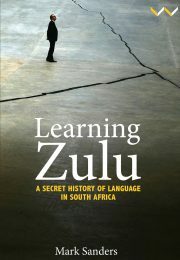Multilingualism and Intercultural Communication
A South African Perspective- Publication Date: June 2017
- Dimensions and Pages: 244 x 170mm; 352 pp; Soft cover
- Paperback EAN: 978-1-77614-026-8
- eBook EAN: 978-1-77614-028-2 (North and South America, China) ; 978-1-77614-029-9 (Rest of world)
- PDF EAN: 978-1-77614-027-5
- Rights: World
- Recommended Price (ZAR): 380.00
- Recommended Price (USD): 50.00
Multilingualism and Intercultural Communication places valuable emphasis on a language implementation plan that will encourage the intellectualisation of indigenous African languages.
— Linda Kwatsha, Department of Language and Literature, Nelson Mandela Metropolitan University
This book offers a unique South African perspective, offering practical solutions to address the language defi cit characterising South Africa institutions of Higher Education.
— Somikazi Deyi, Department of African Languages, University of Cape Town
To date, there has been no published textbook which takes into account changing sociolinguistic dynamics that have influenced South African society. Multilingualism and Intercultural Communication breaks new ground in this arena. The scope of this book ranges from macro-sociolinguistic questions pertaining to language policies and their implementation (or non-implementation) to micro-sociolinguistic observations of actual language-use in verbal interaction, mainly in multilingual contexts of Higher Education (HE).
There is a gradual move for the study of language and culture to be taught in the context of (professional) disciplines in which they would be used, for example, Journalism and African languages, Education and African languages, etc. The book caters for this growing market. Because of its multilingual nature, it caters to English and Afrikaans language speakers, as well as the Sotho and Nguni language groups – the largest languages in South Africa [and also increasingly used in the context of South African Higher Education].
It brings together various inter-linked disciplines such as Sociolinguistics and Applied Language Studies, Media Studies and Journalism, History and Education, Social and Natural Sciences, Law, Human Language Technology, Music, Intercultural Communication and Literary Studies.
The unique cross-cutting disciplinary features of the book will make it a must-have for twenty-fi rst century South African students and scholars and those interested in applied language issues.
Abbreviations and Acronyms
Central Terms and Concepts Pamela Maseko, H Ekkehard Wolff & Russell H Kaschula
Introduction Russell H Kaschula, H Ekkehard Wolff & Pamela Maseko
Prologue: The essentialist paradox in intellectual discourse on African languages H Ekkehard Wolff
PART 1 – AFRICAN LANGUAGE EMPOWERMENT: CONCEPT FORMATION AND INTELLECTUALISATION
Chapter 1: Researching the Intellectualisation of African Languages, Multilingualism and Education – Russell H Kaschula & Pamela Maseko
Chapter 2: Language Empowerment and Intellectualisation through Multilingual Higher Education in South Africa – Pamela Maseko & H Ekkehard Wolff
PART 2 – LANGUAGE PLANNING, TERMINOLOGY DEVELOPMENT, AND DICTIONARIES
Chapter 3: Language Planning in South Africa – A History – Gregory Kamwendo & Nobuhle Hlongwa
Chapter 4: Language and Terminology Development in isiXhosa: A History – Koliswa Moropa & Feziwe Shoba
Chapter 5: Multilingual Terminology and Cognition in Assessment: “If only they knew what was going on in matric” – Bassey E Antia
Chapter 6: IsiXhosa Dictionaries, Language Learning and Intercultural Communication – Dion Nkomo
PART 3 – LANGUAGE IN EDUCATION
Chapter 7: Language-in-education policies – Managing the Multilingualism of learners in the 21st century – Anneke Potgieter & Christine Anthonissen
Chapter 8: University Multilingualism: Modelling rationales for Language Policies – Bassey E Antia
Chapter 9: Reflections on Language Development and Multilingualism in Higher Education – A case for the Cape Peninsula
University of Technology – Monwabisi Ralarala, Eunice Ivala, Ken Barris, Noleen Leach, Linda Mkhize & Zakhile Somlata
Chapter 10: The role of Higher Education in teacher development – Promoting a biliteracy approach to epistemic access in a township school – Michael Joseph, Nompumelelo Frans & Esther Ramani
PART 4 – LANGUAGE IN THE PROFESSIONS: LAW, SCIENCE, MEDIA AND LANGUAGE TECHNOLOGY
Chapter 11: Language and Law – ‘Cultural translation’ of narratives into sworn statements – Monwabisi K Ralarala
Chapter 12: Language and Media: The case of isiXhosa in Journalism and Media Studies at a South African University and ‘how it comes together in Grahamstown’ – Jeanne du Toit & Pamela Maseko
Chapter 13: Language and Science: The Use of African Languages in the teaching of Science in South African Higher Education – Wanga Gambushe, Dion Nkomo & Pamela Maseko
Chapter 14: Language and Language Technology: Prerequisites for the development of Language Technologies in the South African Context – Justus C. Roux
PART 5 – LANGUAGE, CULTURE, AND INTERCULTURAL COMMUNICATION
Chapter 15: Language policy in South Africa – Through the Sapir-Whorf ‘looking glasses’ – Russell H Kaschula & Andre M Mostert
Chapter 16: Language, Intercultural Communication and Literature – NS Zulu
Chapter 17: Language, Music, Literature and Multilingualism in the Rainbow Nation: The East Cape Opera Company – Hleze Kunju & Russell H Kaschula
Chapter 18: Why read German literature in a South African University Context? – Undine Weber, Rebecca S.C. Domingo & Regine B. Fourie
Russell H Kaschula is professor of African Language Studies and he holds a National Research Foundation (NRF) South African Research Chairs Initiative (SARChI) Chair in the Intellectualisation of African Languages, Multilingualism and Education at Rhodes University.
Pamela Maseko is an Associate Professor in African Language Studies at Rhodes University and holds a doctorate in the field of African Language Intellectualisation.
H Ekkehard Wolff is a world renowned sociolinguist based at the University of Leipzig and specialising in African sociolinguistics and was Visiting Professor at Rhodes University in 2014/15 under the DAAD Johann Gottfried Herder Programme.
Multilingualism and Intercultural Communication places valuable emphasis on a language implementation plan that will encourage the intellectualisation of indigenous African languages.
— Linda Kwatsha, Department of Language and Literature, Nelson Mandela Metropolitan University
This book offers a unique South African perspective, offering practical solutions to address the language defi cit characterising South Africa institutions of Higher Education.
— Somikazi Deyi, Department of African Languages, University of Cape Town


